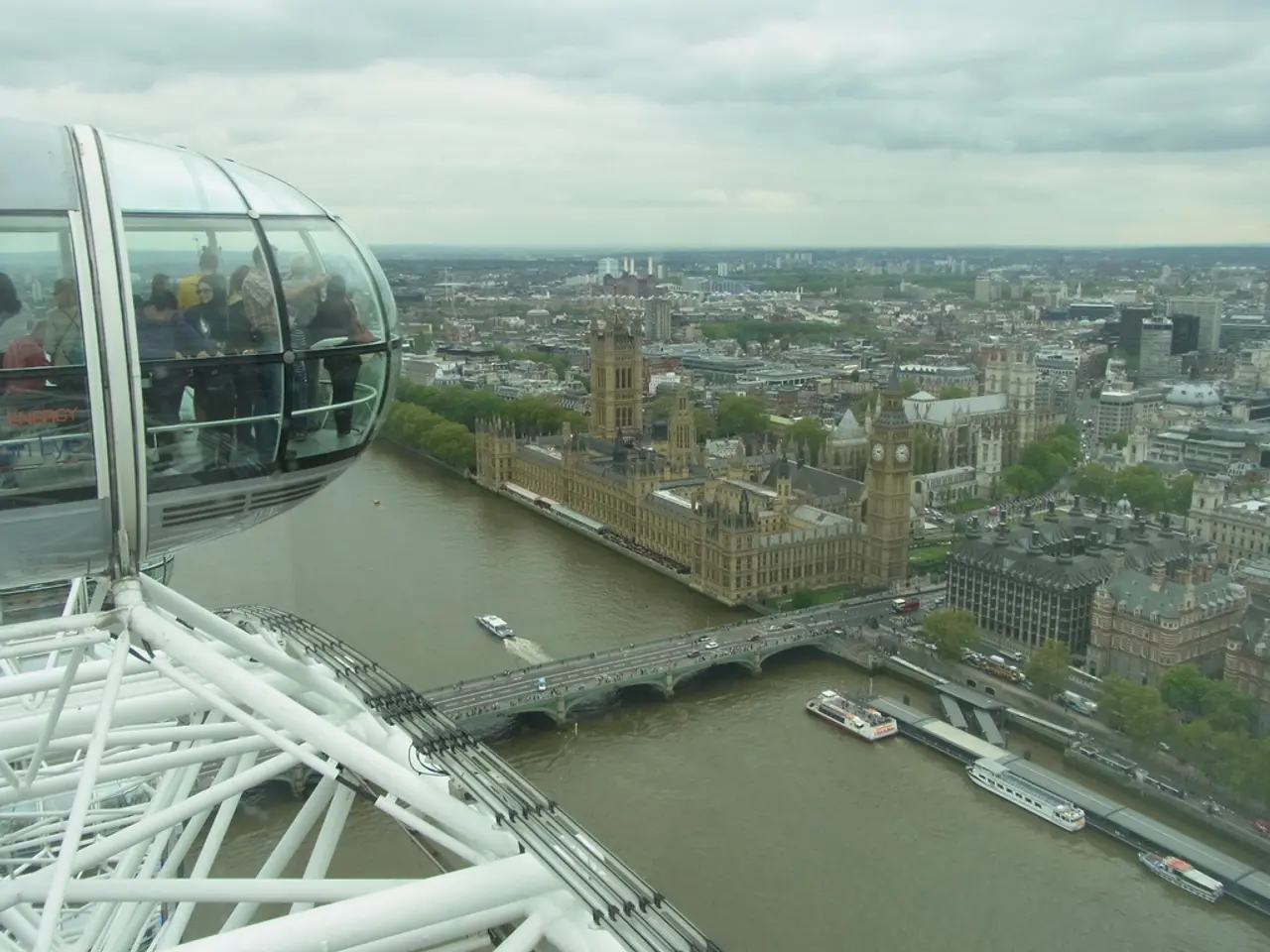United Kingdom lists as the ninth-poorest nation for real estate investment opportunities
Strain on UK Rental Market: High Taxes and Regulatory Burden Push Landlords Out
The UK rental market is facing a crisis, with average rental costs skyrocketing by 8.4% and a significant strain on the rental supply. According to the latest data, the number of available rental properties is now 13% higher than last year, though still 27% below 2019 levels.
Experts suggest that incentivizing landlords to invest in energy-efficient upgrades or offering tax relief could help maintain rental supply and ease affordability pressures for tenants. Rightmove's director of property science, Tim Bannister, has proposed these measures as potential solutions to the current crisis.
The high taxes and regulatory burden on the buy-to-let sector are contributing to the challenges faced by landlords. The withdrawal of mortgage interest relief and the threat of a capital gains tax raid in this month's Budget could increase the number of landlords quitting the rental market.
Landlords can no longer deduct full mortgage interest from rental income. Instead, they receive only a 20% tax credit, narrowing profit margins especially for higher-rate taxpayers. Stamp Duty Land Tax (SDLT) remains a significant burden, making moving and purchasing properties expensive. The system is criticized for being outdated and suppressing market activity.
Additionally, higher mortgage rates, regulatory pressures, and rising property prices are increasing borrowing costs and compliance responsibilities for landlords. The National Residential Landlords Association has urged Labour to bring in "pro-growth tax plans" to ensure there is enough stock to house renters.
Despite these challenges, demand for rental properties remains strong due to population growth and housing shortages. Approximately 18% of homes currently being put up for sale in the UK were previously rented out, up from 8% in 2010 and above the five-year average (14%).
However, the average number of tenant enquiries for each rental property available has fallen to 15, down from 23 at this time last year. This suggests that while demand remains high, the supply of suitable rental properties is dwindling.
The UK ranks as the ninth-worst country for property investment, according to a study by removals firm 1st Move International. Belgium is the worst country for property investment, with a score of 2.90 out of 10, while Estonia is the second-best country with a score of 7.04. Central and eastern European countries topped the list for the best property markets in terms of financial returns.
The income tax on rent in the UK stands at a staggering 47%, and buying costs are significant at 15.10%. Despite a relatively strong rental profit of 7.03% per annum, high tax rates hinder the appeal of the UK to investors. The Labour Party has been urged to address these issues to ensure the sustainability of the rental market and affordability for tenants.
In light of these challenges, it is clear that action is needed to support the rental sector and maintain a stable supply of affordable housing for tenants.
Landlords might consider investing in the real-estate sector for potential financial gains, but the current high taxes and regulatory burden in the UK's buy-to-let sector, including mortgage interest tax changes and Stamp Duty Land Tax, could discourage them. Addressing these financial challenges, such as offering tax relief or incentives for energy-efficient property upgrades, could help maintain a stable supply of rental properties and ease affordability pressures for tenants, as suggested by experts like Tim Bannister from Rightmove.




